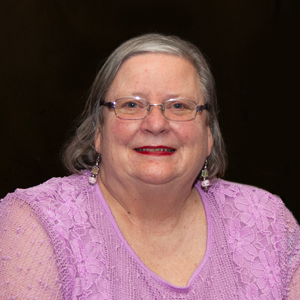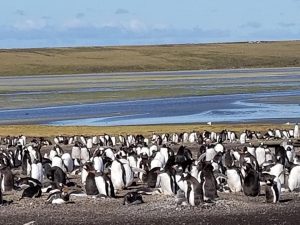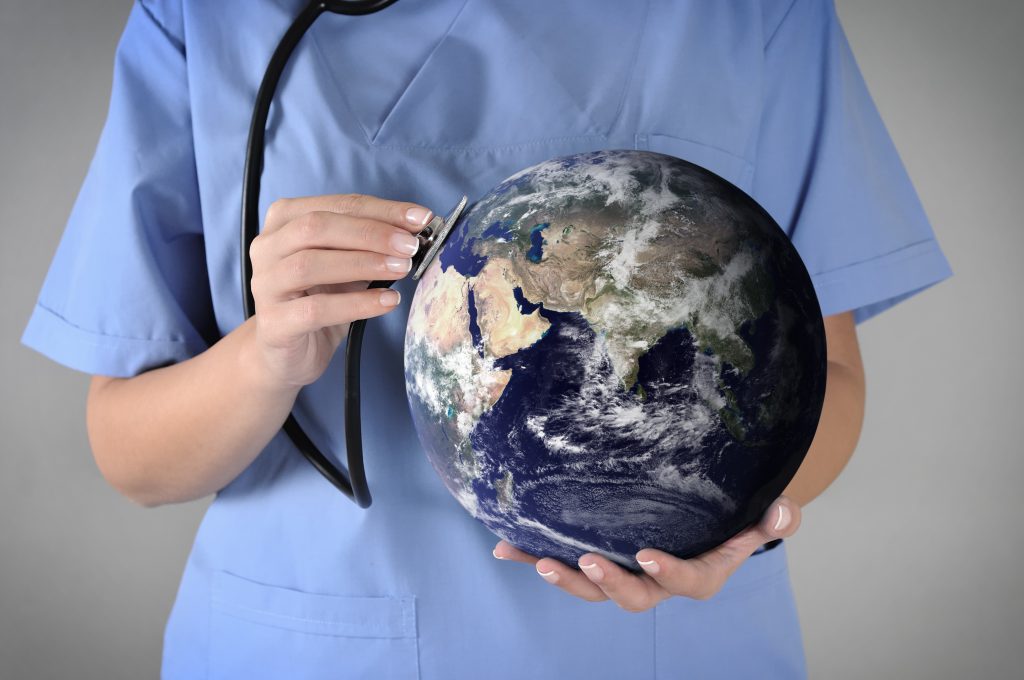 Aspen University Dean of Nursing on climate change, penguins, and how nurses can help save our environment.
Aspen University Dean of Nursing on climate change, penguins, and how nurses can help save our environment.
Whether in person, online, or over the phone, Dr. Nina Beaman has always registered as passionate, nurturing, knowledgeable, and, most importantly, hopeful. She truly believes in the power of positive change.
Thanks for speaking with me today, Dr. Beaman.
About 7 in 10 (69%) Americans believe global warming is happening, and that number continues to grow year over year.
While many may use the term “global warming,” that’s a bit of a misnomer. Humans have adapted to a particular climate in a specific region, and those climates are changing.
In your opinion, how is climate change affecting our communities?
Places that were traditionally cooler have become warmer. Warmer places have become colder. Some areas are seeing unprecedented rain and flooding, while other regions suffer extreme drought. All of this means that certain crops cannot be grown there. Certain lifestyles and cultures can no longer behave the way they used to. Mass migrations from one country to the next — or even from one part of a state to the next — can occur and stretch the resources of different communities. So climate has a significant impact on communities, on patients, and generally on health.
What kind of impact does climate change have on health?
The environment is vital to health. If our families, friends, and patients are not breathing clean air, if clean water is not available to them, if we lose oxygen-producing plant life, that becomes hugely problematic.
Can you share some specific health issues that might arise because of climate change?
Well, for example, humans must have clean water. We can only live about three or four days without clean water. Extreme weather can pollute our water, and water that is not clean can carry microbes in it that can be dangerous to our bodies. Also, if you cannot access water at all, then sometimes you have to use stagnant ponds or water that is not pure. That can lead to cholera, dysentery, and different gastrointestinal disorders.
If we don’t have good water, then we don’t have good crops. If we don’t have good water, then we don’t have good animal husbandry. And so it affects our food, which affects our nutrition. If we don’t have good air, we will become ill. We need plants — plants take carbon dioxide and produce oxygen. We need more and more plant life at a time when more and more plant life is burning.
Right. Like the bushfires in Australia and California wildfire?
Yes. This issue is global. Loss of plant life in one location produces an imbalance of oxygen on the planet, and fires increase global temperatures.
What are some common misconceptions that people have about how climate change might affect their health?
I think there is the misconception that climate change doesn’t exist or that this all happens as a cycle. We’re doing things to our earth that has never been done before in the history of this planet. That may have some impacts that shouldn’t be ignored. Just as the human body tries to adapt when a limb is damaged, or there’s a wound somewhere, the other parts of the body that are healthy that have alternative resources need to be pitching in those resources.
We must adapt like the penguins.
Like the penguins?
I recently took a trip to Antarctica and the Falkland Islands to commune with the penguins for about a month because I’m enamored with them. I learned a lot about climate change and geology and the threats to our environment from climate change. Brought that back, added my nursing knowledge to it, and said every nurse should take personal responsibility for making their environment healthy for themselves, their families, and their patients.
Why so enamored with penguins?
 Penguins look after each other’s chicks in what’s called a rookery, where they give birth to their egg, and they nurture it. But actually, they have a lot of predators, poor little guys. And they all look after each other’s eggs, much like Aspen University does for our students. I’ve always felt a kinship with penguins because of the Aspen mission of nurturing as a group, collaboratively.
Penguins look after each other’s chicks in what’s called a rookery, where they give birth to their egg, and they nurture it. But actually, they have a lot of predators, poor little guys. And they all look after each other’s eggs, much like Aspen University does for our students. I’ve always felt a kinship with penguins because of the Aspen mission of nurturing as a group, collaboratively.
Penguins, they adapt very well, but they’re sending a signal to us that we also need to adapt. Penguins don’t have any power. We can make the changes to save the environment for the other animals that aren’t empowered like we are.
What kind of changes can nurses make?
Patients frequently do not have the power to change their environments to become more healthy. Fortunately, nurses can predict disastrous results based on what they know about anatomy, physiology, and pathophysiology — and even about disaster nursing, and they can mitigate a lot of the damage that can happen with climate change.
Nurses can educate the public, advocate for healthy environments, and can also be on community boards where they ensure good water, good air, and good nutrition.
A lot of it, too, is that nurses are the most trusted profession. So at a time when people still question the science of climate change, nurses could provide the evidence-based practice that we are so accustomed to as part of our culture. Nurses could be that evidenced-based wise counsel for the communities to say, “This is real, this is not junk science. This is something we need to be alert to for the future health of our communities.”
What can the average person do in their everyday life to help out?
We need to recycle things that can be recycled, use items that can be reused, and push back against this throwaway culture that we have developed. Plastic that is thrown away doesn’t decay in landfills, but plastics that are reused over and over is a good use of plastic. Plastic is not evil; it’s the disposing of plastic after one use that causes a problem. We need to rethink some of our lifestyle choices, such as filling up a reusable water bottle rather than buying lots of plastic containers, which then get thrown away.
This topic brings us back to nursing. There’s a lot of single-use plastic in hospital settings such as the bendy straw for patients who struggle to take sips, the cup itself, and other medical equipment. Is there anything nurses can do to adjust how they treat patients to have a better effect on our environment?
Yes! I think that nurses are great critical thinkers; because wherever they are, they can look around their environment and say, ‘We don’t have to use plastic straws. There are other things we can use and reuse.’ If every single nurse advocated for his or her environment, we could really make a difference— be it long term care or acute care or the public domain or even academia. There’s something that they can do because they are good at spotting those things, just like Florence Nightingale did.
Do you have any examples in mind of this?
A simple one is the disposable containers of water. Patients and employees could have their own containers that are cleaned out appropriately and reused.
What about food waste?
We waste a lot of food and so much packaging. There’s no reason to make menus a whole year in advance. There’s so much more value in creating menus based on what is in season. I live in rural Virginia. I can get food locally, and it doesn’t have to be heavily packaged. It hasn’t gone a far distance. It hasn’t been picked before it needed to be, and locally grown food won’t have all the preservatives in it either. And there’s nothing wrong with feeding the patient and then telling them they can have second helpings later versus disposing of the meal.
Incorporating clean eating at any point in the care plan can only benefit the patient. What else can nurses do to reduce waste?
In hospitals years ago, patients filled out a piece of paper for each meal. A great thing hospitals can do is offer a laminated menu so it can be wiped down very easily between patients. The patient calls a number and places the order for only the food the patient wants. That saves enormous volumes of paper, food, and money. Sometimes it’s as simple as small actions like that where the patient doesn’t need all the paper that’s thrown at them and, you can trace it just as easily by having them call in the order and have that order put onto a computer. There’s no paper involved in any of that. I think that’s where we need to be creative and think about what pieces of paper do we need and how can we move beyond paper. Paper comes from killing trees. Trees are the world’s lungs.
Makes sense!
And even if you feel like it’s just me and I don’t make a difference, multiply that by the number of nurses in America and then the world. We can make a difference if each of us gets on board.

